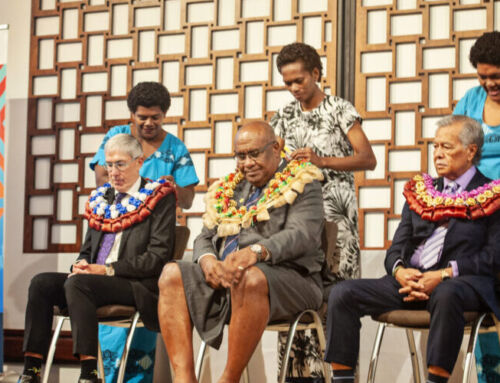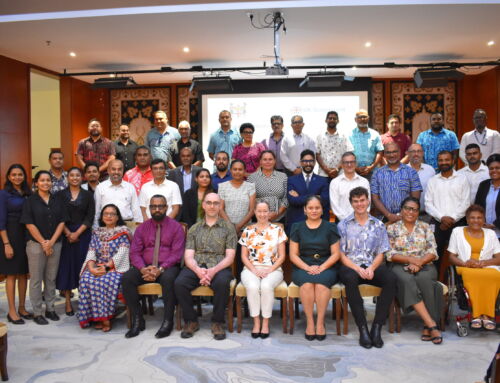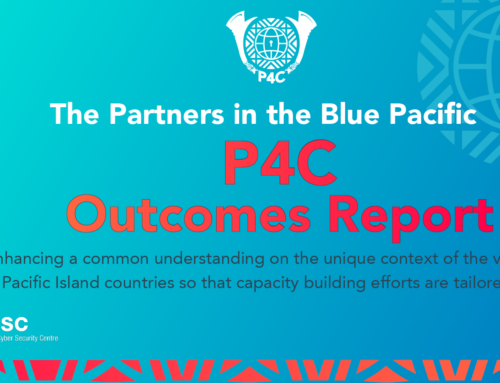Australia’s premier cyber security research organisation, the Oceania Cyber Security Centre (OCSC), has implored the country’s policy makers, industry and research community to place a greater emphasis on improving local and regional cyber security resilience in order to protect the national interests of Australia and close neighbour states.
The OCSC is a not-for-profit collaboration of eight universities based in Victoria, Australia, with the ‘broad aim’ of engaging with government and industry to conduct research, develop training opportunities and build capacity in Australia and across the Oceania region for responding to current and emerging cyber security issues.
Last week, the OCSC held its inaugural Project Showcase event in Melbourne, with chairman Cameron Boardman delivering an address in which he noted that the rapid growth and proliferation of notifiable data breaches was proof that Australia and its smaller neighbouring island states remain ill-equipped to deal with arguably the most proximate and prominent threat to their respective economies and national security.
“The number of notifiable data breaches is growing steadily and significantly. Understanding where the gaps are is critical to lessening the ability of bad actors or cyber criminals to attack a nation, its peoples and their allies,” Boardman said.
“It’s also important to note the stepping stones or ‘hop points’ for a cyber attack are not just limited to smaller, developing economies. There are examples of cyber attacks where trusted suppliers in ‘developed’ economies have been infiltrated to gain access upstream into more secure environments.”
The centre’s eight university partners, as well as over 120 specialist information technology and cyber security researchers within them, provide the foundation to work with private enterprises and the public sector to identify and develop solutions to complex security threats.
The first ever showcase event allowed leading cyber security researchers from OCSC member universities to present current proof of concept projects to an audience of some 200 academic peers and industry representatives.
“The OCSC is committed to working with the Australian and regional governments to prioritise and drive projects that can help build national cyber security capacity across Australia and the region and create a free and safe cyber space for all,” Boardman said.
Nine first-round collaborative projects were showcased in total, with Carsten Rudolph, associate professor for cyber security at Monash University and OCSC director, saying the event not only presented an opportunity to showcase the projects underway, but also provided a critical juncture between researchers and industry to strengthen opportunities for further collaboration and applications.
“An important part of our remit at OCSC is to not only showcase the available research but to catalyse collaboration opportunities between universities and the wider industry communities, including both private enterprise and the public sector,” Rudolph said.
“We are proud to present the first round of nine collaborative projects and we are committed to seeing them through to fruition as tools and solutions with real-world practical applications that can improve the cyber security resilience of Australia and our neighbour states across Oceania.”
The Victorian government provides ‘substantial support’ for the OCSC to carry out its operations, with its key areas of interest including:
- Critical infrastructure;
- Data analytics;
- Network security;
- Cryptography;
- Privacy and social media;
- AI and automation; and
- Organisational security.
The centre’s flagship project is the Cybersecurity Capacity Maturity Model for Nations (CMM), which has been deployed to over 70 countries.
The OCSC works in collaboration with the University of Oxford’s Global Cyber Security Capacity Centre to complete national level cyber security capacity policy assessments predominately in the Pacific region.
OCSC’s other key partners to deliver these projects are the Global Forum on Cyber Security, the International Telecommunication Union and the Asia-Pacific Network Information Centre, the regional internet address registry.
To date, the OCSC has completed CMMs for Samoa, Tonga, Vanuatu, Papua New Guinea and Kiribati.






